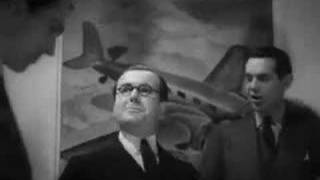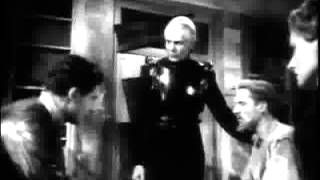Upplýstur despotism í hlutum til að koma (1936)
H.G. Wells wrote the story of Things to Come, sem var breytt í myndinni í 1936. Myndin opnast á jólunum 1940 í Everytown (augljóslega London) rétt áður braust stríð. Stríðið varir næstum þrjátíu árum áður “the airmen” undir forystu John cabal, fyrrverandi heimilisfastur Everytown, leads the survivors to victory over the remaining war lords.

Still from Things to Come of Everytown in 1940
“The Airmen” use non-deadly means such as sleeping gas to bring the war lords to surrender. John Cabal, played by Raymond Massey, leads the Airmen in rebuilding society on principles of non-violence and mutual support.
Things to Come (1936) struggles with the issue of enlightened despotism. While the film seems to advocate John Cabal’s remaking of society, it cannot escape the reality that enlightened despotism is despotism just the same. Whether the despot believes his actions are benefiting him or benefiting society, the despot does not trust citizens with their freedom.
As you will see in the film even a society that has extended life and improved societal condition will experience rebellion when citizens do not have freedom to make their own decisions. “The Airmen” are no less despotic than the regimes that they replaced.

Still from Things to Come (1936)
Things to Come (tengja hlekkur) is a feature film and runs approximately 90 mínútur.
You can leave a comment or ask a question about this or any post on my Facebook síðu.
Pinna það
